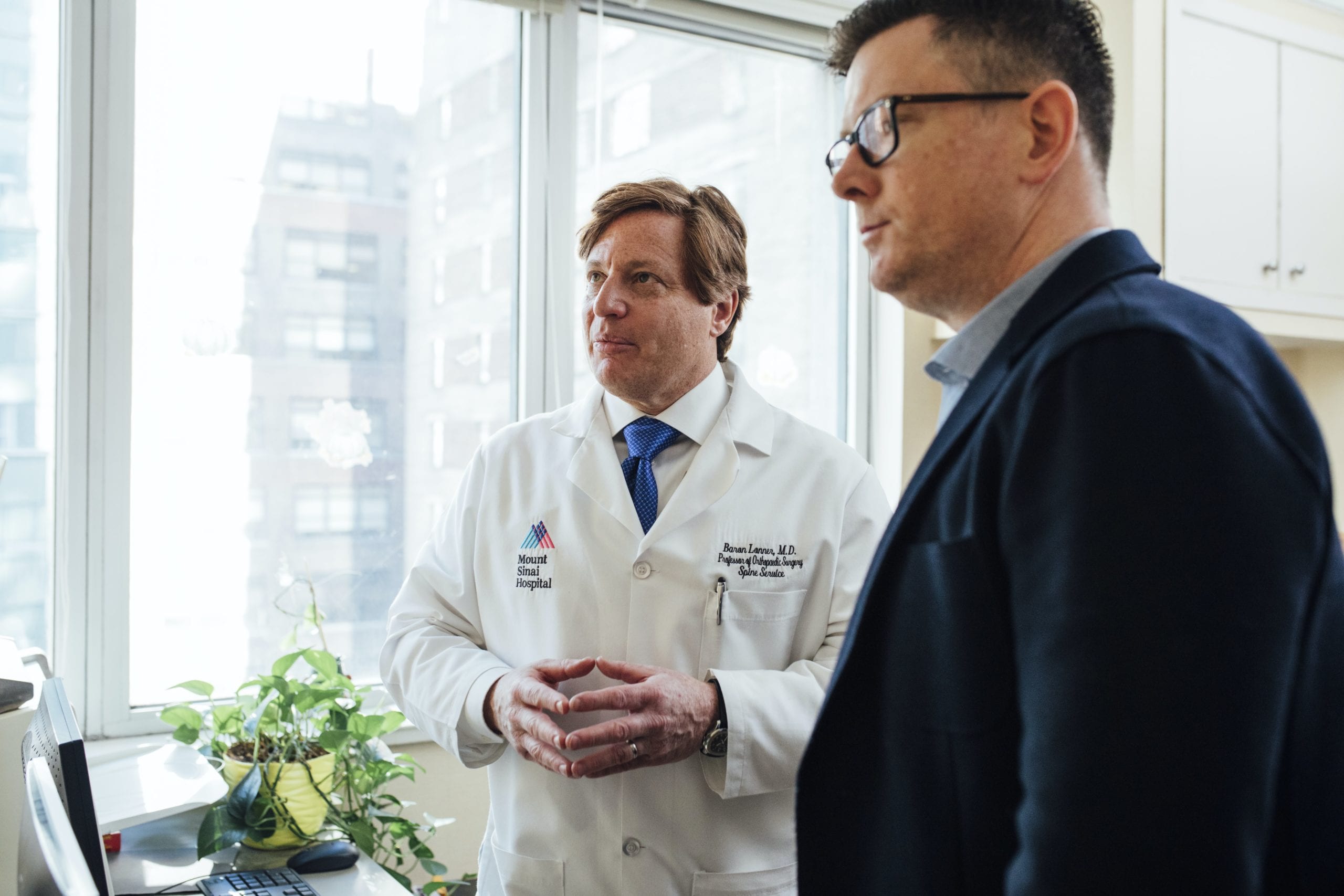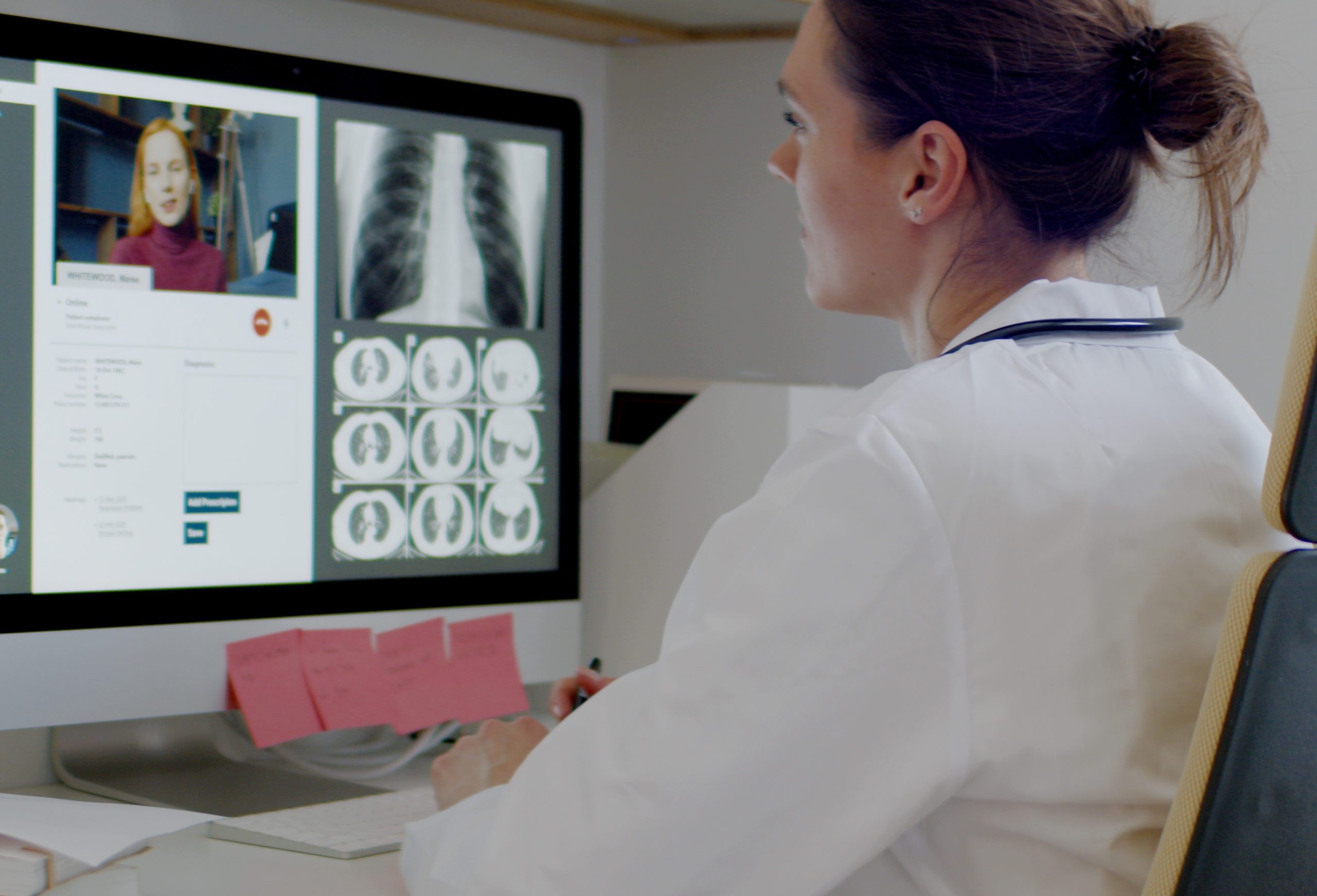2021 Kicks Off with MedTech Advancements for Parkinson’s, Alzheimer’s, and Surgery Patients (MedTech Download)

Key Takeaways
- The FDA has granted Breakthrough Device status to Boston Scientific’s Vercise deep brain stimulation systems to treat both Alzheimer’s and Parkinson’s.
- Researchers have developed a new sensor that can detect COVID-19. The sensor is placed on a face mask and can be produced for just a few cents per strip.
- The CDC reported that Abbott’s rapid BinaxNOW antigen test “may miss nearly two-thirds of COVID-19 infections in people without symptoms.”
FDA Breakthrough Nods Go to Alzheimer’s Devices, Cardiovascular Products

The battle against Alzheimer’s Disease has been waged for decades. According to the CDC, “in 2014, an estimated 5 million Americans aged 65 years or older had Alzheimer’s disease. This number is projected to nearly triple to 14 million people by 2060.” With patient numbers growing, the need for solutions to both treat and prevent Alzheimer’s has never been greater. Not only is the disease the 6th leading cause of death for adults in the US, but the fact that it steals the memories and lives of so many necessitates action for the greater good.
Last week we featured an article surrounding a recent meeting hosted by the North American Neuromodulation Society, where industry leaders discussed portfolios and plans for 2021. While the pandemic has negatively impacted the industry, recent news alludes to the fact that this year will be one of recovery. Recently the FDA granted Breakthrough Device status to Boston Scientific’s Vercise deep brain stimulation (DBS) systems in people aged 65 years and older with mild probable Alzheimer’s.
MedTech Dive reported that doctors found, when using deep brain stimulation for another condition, that “DBS “evoked detailed autobiographical memories,” leading the researchers to study the effect of stimulating the fornix in Alzheimer’s patients.” For a disease in which “drug developers have so far failed to improve outcomes in Alzheimer’s patients,” these new developments have the potential to dramatically change lives. Medagadget reported that the Vercise system is approved to treat Parkinson’s as well.
Face Mask Sensor to Detect COVID-19

As the battle to control and stop COVID-19 continues, companies are adding new ammunition to the healthcare system’s arsenal. The current focus surrounds vaccination; bringing new vaccines to market, and administering current ones. But even though vaccines give us hope for a future without COVID-19, the truth is that a maskless reality is likely many months away.
This is why COVID-19 testing is crucial in limiting the spread and saving lives. Recently, newly approved at-home testing has gotten attention. Additionally, researchers at the University of California, San Diego have developed a “wearable sensor that can be attached to masks to detect the presence of these proteases and therefore the COVID-19 virus.” And researchers believe that this form of testing could be produced for just a few cents per strip. While this sensor does not replace PCR COVID testing, it would “sit in the background every day and if it gets triggered, then you know there’s a problem and that’s when you would look into it with more sophisticated testing.”
Homegrown MedTech Company Centese Develops Game-Changing Device for Surgery Patients

Medical technology has the potential to dramatically reinvent the healthcare system. For example, increased investment in point-of-care products has ushered in vastly better ways for physicians to care for patients, and for patients to care for themselves. Other innovations improve efficiencies in both the clinic and hospital settings. Or, in the case of telehealth, in bringing the hospital or clinic into the home.
Some of the most impactful innovations revolutionize processes that have been “left behind.” In other words, in the medical industry and beyond, people find themselves mired by processes that should be left to technology. When it comes to heart and lung surgery, Omaha-based MedTech Startup Centese recognized that the analog chest tubes used to drain fluid from a patient’s body were not optimal.
Their new device, Thoraguard, is a self-irrigating mechanism that eliminates “the need for medical personnel to keep a constant eye out for blockages and other irregularities. The system cleans itself, and its automated self-monitoring capability continuously measures the level of a patient’s post-surgical fluid drainage, sending an alert to medical staff when necessary.” As Evan Luxon, co-founder and CEO of Centese said, “Thoraguard saves time, money, and discomfort in the recovery process, reduces strain on medical staff, and improves patient outcomes.”
Abbott Antigen Test Misses Two-Thirds of COVID-19 Asymptomatic Cases: CDC

When it comes to COVID testing, one of the other key tools used by the healthcare community is antigen tests. But since the beginning, companies and providers have been clear that, while antigen testing is faster than PCR, they carry a higher risk of false positives. And while schools, sports leagues, and other institutions have used these tests as a quick and affordable way to monitor transmission, the risk of an infected individual receiving a false negative is a real risk.
To decipher the level of accuracy of antigen testing, the CDC worked with two COVID-19 testing centers to compare the performance of Abbott’s rapid point-of-care BinaxNOW antigen test to PCR. They found that the BinaxNOW antigen test “may miss nearly two-thirds of COVID-19 infections in people without symptoms.” They did find, however, that BinaxNOW does catch most infectious cases.
Stay up-to-date on everything that matters to MedTech entrepreneurs and executives. Subscribe below to receive industry insights, MedTech resources, and more delivered directly to your inbox.




